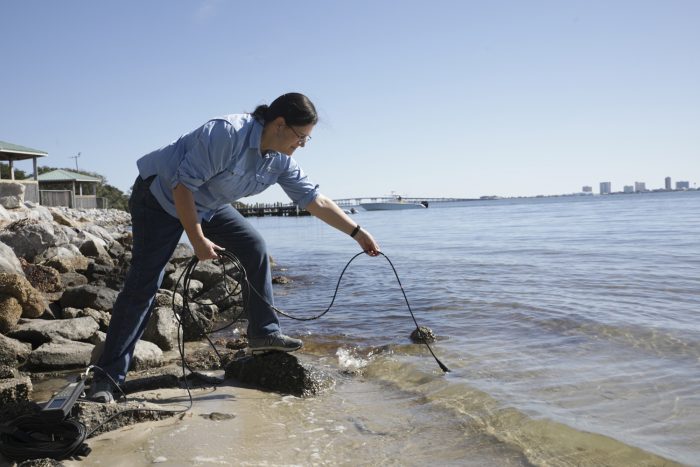
“We’re trying to figure out how to improve the environmental conditions in each estuary program region,” Caffrey said. “And this is something for which you need a lot of science, a lot of monitoring.”
The project is funded by a grant from the Florida Institute of Oceanography’s Centers of Excellence Program. The grant will fund a full inventory of historical data, which includes water quality trends, land cover trends and information about activities upstream from the estuaries.
“There is not a lot of integration of data because the local estuary programs are in the early stages,” Caffrey said. “What we are trying to do is take a deep dive into all the information that is out there and try to provide them with synthesis of what we know about each of their systems and what the major problems are.”
Caffrey and Deitch will tackle a wide range of issues that area estuaries face; including loss of seagrass, issues with stormwater runoff and the effects of population growth on water quality.
“We want to talk with local stakeholders about what they think are the most important problems to address,” Caffrey said. “We would then do some modeling work to see how successful specific projects might be.”
Caffrey said she and Deitch could, for instance, create a model that would show how planting beds of oysters in a local bay might affect water quality. She and Deitch would then present their findings to the appropriate estuary program.
“There is a reason we’ve lost many oysters and much seagrass recently,” Deitch said. “We want to see what else happened simultaneously. Once we know that, we can start to piece together what we need to return to our estuaries to have those features back in.”
Caffrey expects the project to launch in January 2020.
For more information about the UWF Center for Environmental Diagnostics and Bioremediation, visit uwf.edu/cedb.































